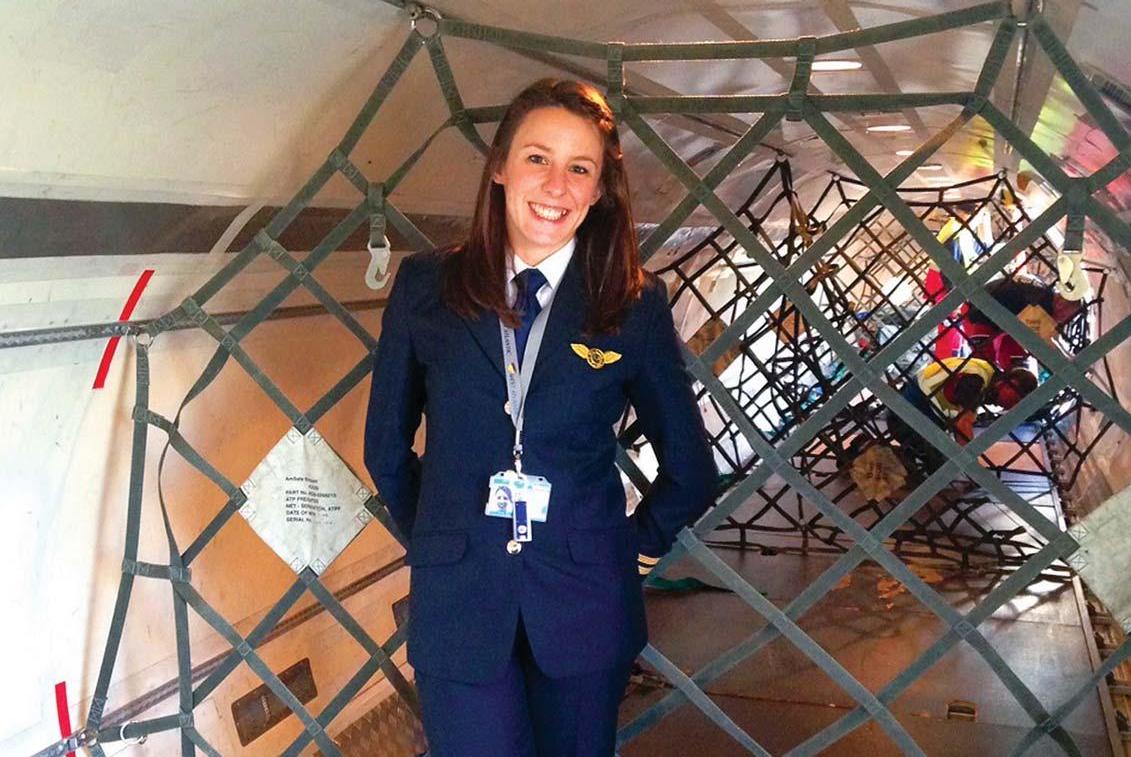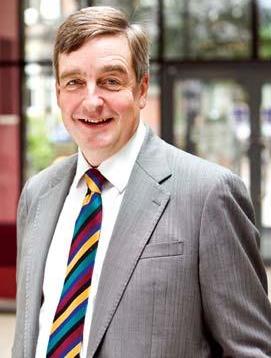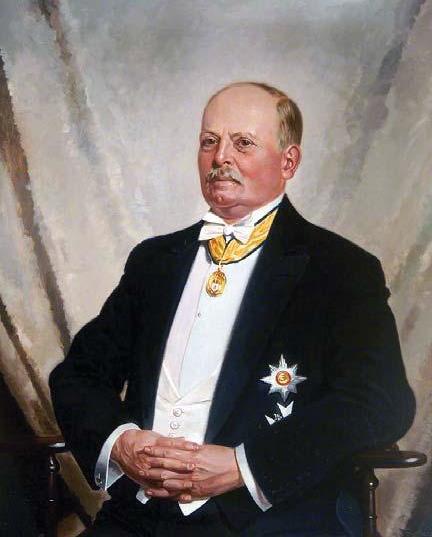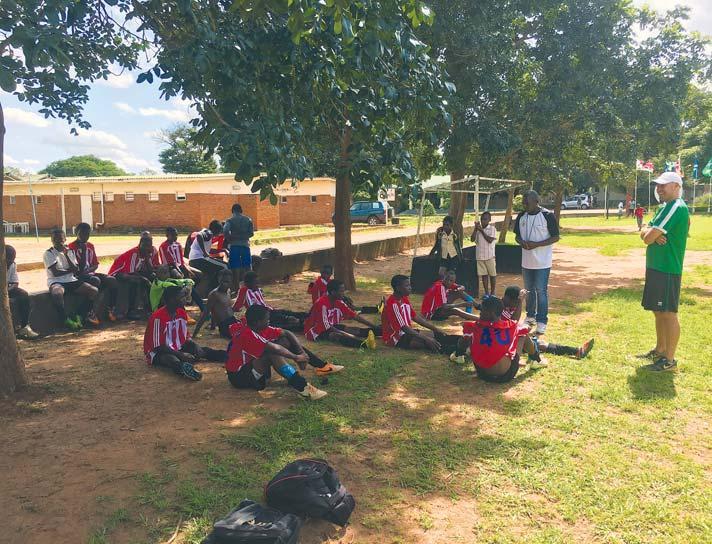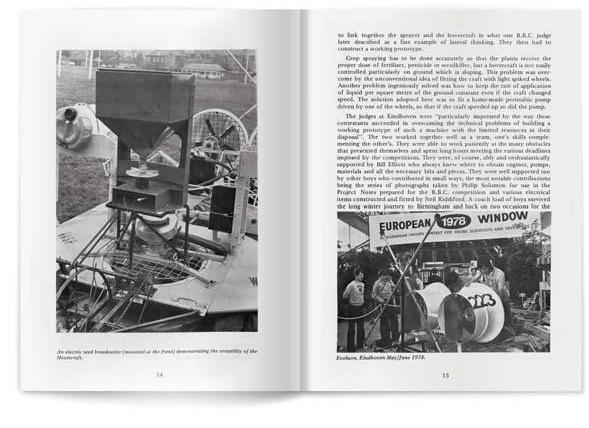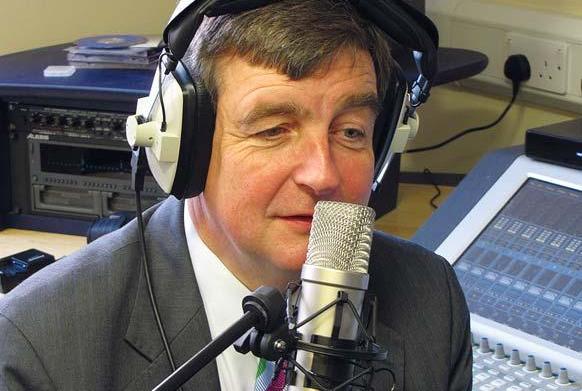
7 minute read
Headmaster Retires
from ONA 100
Bernard Trafford (08-17)
I joined the RGS as its Headmaster in September 2008, fresh from a hectic year as Chairman of HMC, the association that represents the 300 or so leading independent schools in the UK (plus some 50 British-style schools in other countries around the world). By Bernard Trafford
Advertisement
All in a day’s work: recording a message; prowling the corridors; presiding over the Carol Service
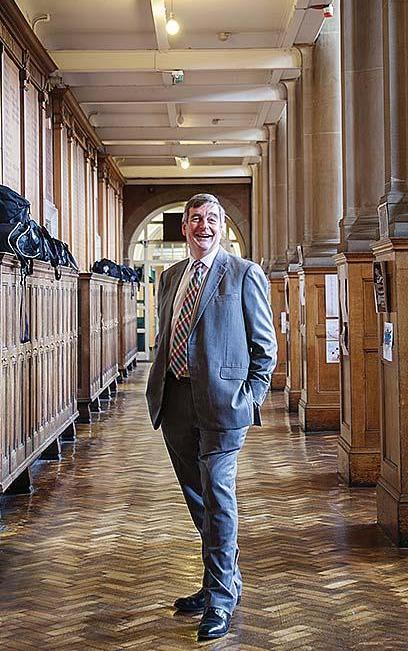
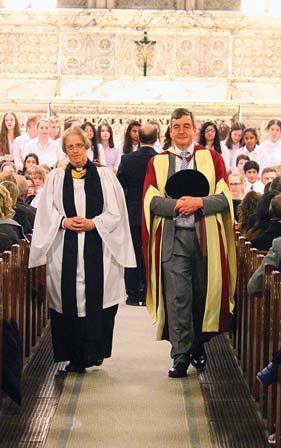
When I applied for the job at the RGS, I had a good idea of what I was coming to. I had always taught in old grammar schools,16th Century foundations that had weathered the storms and stood the test of time, always clear in their vision and purpose. Indeed, I started teaching at the RGS in High Wycombe, a school against which we still play cricket once a year at the now legendary RGS Cricket Festival.
So I knew the beast, and felt at home in the type of school. Yet every school is also individual, unique: that’s certainly true of the Newcastle RGS. It is, as we so often say when trying to describe it to potential parents and students, “a special place”. More than that, when I arrived I said (perhaps too frequently) that the RGS isn’t just a “great school”: it is truly “one of the country’s great schools”. That remains true.
It’s not for me to judge what has been achieved over the last nine years: others must do that. Certainly I found a school that was powerful, at ease with itself, and in the midst of a period of enormous development and transition. Already a passionate co-educationist, I was delighted to be able to see the process, already underway, through to what we might describe as ‘full coeducation’: as I write this, more than 40% of the student roll are girls.
Inevitably such a change means that there has been significant work to do on culture and ethos –yet without, I would claim, losing one iota of the traditional strengths and values of the school.
I arrived to see some fantastic modern buildings added to the handsome 1906 school: it’s been exciting to continue that development which will, of course, go on beyond my tenure with what the Governors are calling, in convenient shorthand, Project XL3.
I’m sometimes asked what headmasters do: it’s a tricky one to answer, so I won’t bother here! But I’m also asked what an individual head brings beyond that overall management and leadership role.
I’ve always loved to be immersed in, and to support absolutely as much as I can, the whole of school life. I’m as fanatical in my commitment to the extracurricular life of the school as everyone else in it, and still reckon that our somewhat crazy formula works. Students and staff alike work flat-out for the length of the term, necessarily slightly shorter than terms in the state sector: and then, if not collapsing, they at least use those holidays and half-terms for vital R&R. In how many day schools will you see students still involved in after-school activities at getting on for 7pm on a Friday? It happens here.
I’m a musician by training, starting out in education as a Music teacher: so if I’ve been able to contribute in a specific area, of course it’s been in the performing arts, something I have relished.
But heads can often add lustre and encouragement to events just by being there: I know how important it’s been that I’ve been on touchlines and boundaries as far as possible, never as much as I’d like, always regretting missing yet another amazing win, even better when it’s achieved against the odds.
I’m also asked about high spots. It’s a curious thing about headship: we heads are always involved in ‘the long game’, and it’s hard (not to say invidious) to identify individual events as standing out. Certainly I’d have to list being on one of those 12 buses down to Twickenham in 2010 to support our lads in the final of the Daily Mail Cup.
A personal highlight for me was in the summer of 2012 when the Performing Arts department staged my musical, Flotsam. The privilege for a writer of seeing his work brought to life is hard to describe adequately: but the event is perhaps more memorable for the fact of the ‘Great Flood of Thunder Thursday’, just two days before Flotsam’s first performance. I shall always remember, with the greatest pride, the way the school community rallied round to cope. To keep out at least some of the floodwater, members of the domestic staff in wellies and rubber gloves defied the encroaching waters with mops and brooms. And all the staff mucked in and cleared up the next day so that school could start and RGS Day could operate almost as normal.
Nonetheless, for me it’s not so much particular highlights as the host of achievements. Exam results, of course, but also the successful events, matches, debates, performances that accumulate to demonstrate the sheer quality of the school and the great things that its students achieve.
After all, a school is about people. I have worked with wonderful colleagues, supportive, hardworking, professional, inspired and inspiring (as we say in our job adverts!) –and, above all, fun to be with.
Exactly the same qualities are displayed by our students, undoubtedly learning from their teachers. Our students are ambitious and aspirational, though rarely unrealistic: high-achieving and confident, yet modest; focussed, yet generous. Yet, notwithstanding all that achievement, one of the charms of the school, of its students and its staff, is the ability to laugh at ourselves. The RGS banter, when kind and properly judged (we don’t always get it right!), is hilarious, mischievous, irreverent –but rarely lacking in respect.
And what of the school’s alumni? I’ve loved working with the ONA, its committee bringing together people so proud of and ready to work for their old school. But not only the members of the committee! It’s been fascinating and enormous fun meeting ONs of all ages, regular attenders at dinners; once-in-a-lifetime returners from abroad; those anxious to show their partner, children or grandchildren round their old school. They come in all sorts of guises and for many different reasons –
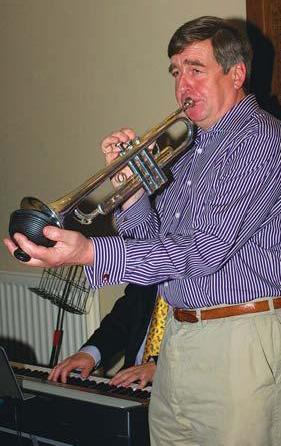
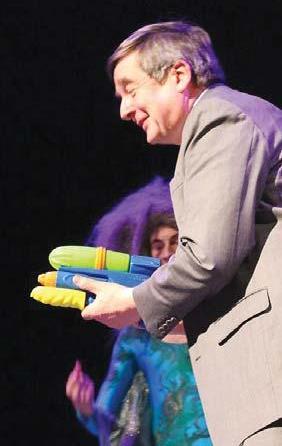
At home playing the trumpet: not so sure about dealing with aliens!
but they are always a treat to meet, and invariably appreciative of what the school did for them.
Inevitably, and delightfully, there is always overlap between dealing with the school’s alumni and working on the serious business of the Bursary Campaign. It’s been wonderful to see our fundraising total increase from £3.8m in 2008 to £6.5m this year: yet that sum is, as everyone knows, a drop in the ocean that is needed if we are really to meet the need for bursaries that is out there among potential recipients of support with school fees. That’s not to decry the efforts and generosity of so many to date: I am pleased, moreover, that, as I leave, Governors and the campaign committee are working together to plan a new and enhanced focus on bursaries. I wish them every success.
It’s the people, really, that I shall miss above all. The camaraderie, the laughter, the easy friendships and the respectful relationships at all levels.
I’ve been institutionalised(!) for 39 years as a teacher – and, I guess, through my education before that: so it might feel odd in retirement not to be ruled by bells, appointments and timetables. But Katherine and I look forward to freedom from that particular treadmill.
I want to read the newspaper in the morning instead of in bed at night: I hope to stay awake in concerts and plays; and I expect to have more time both for writing and to get back into music-making which has been difficult to squeeze in, in any quantity.
We’ll settle in Oxford, where we’ve bought a house, for most of the year, surrounding ourselves with culture and the trappings of academe: but we’ll keep hold of our cottage in Northumberland, which we still regard as our little patch of heaven.
I’ve been privileged to work in fantastic schools, to run two of them, and to spend my professional life with wonderful colleagues and students. For all of that I’m profoundly grateful.


